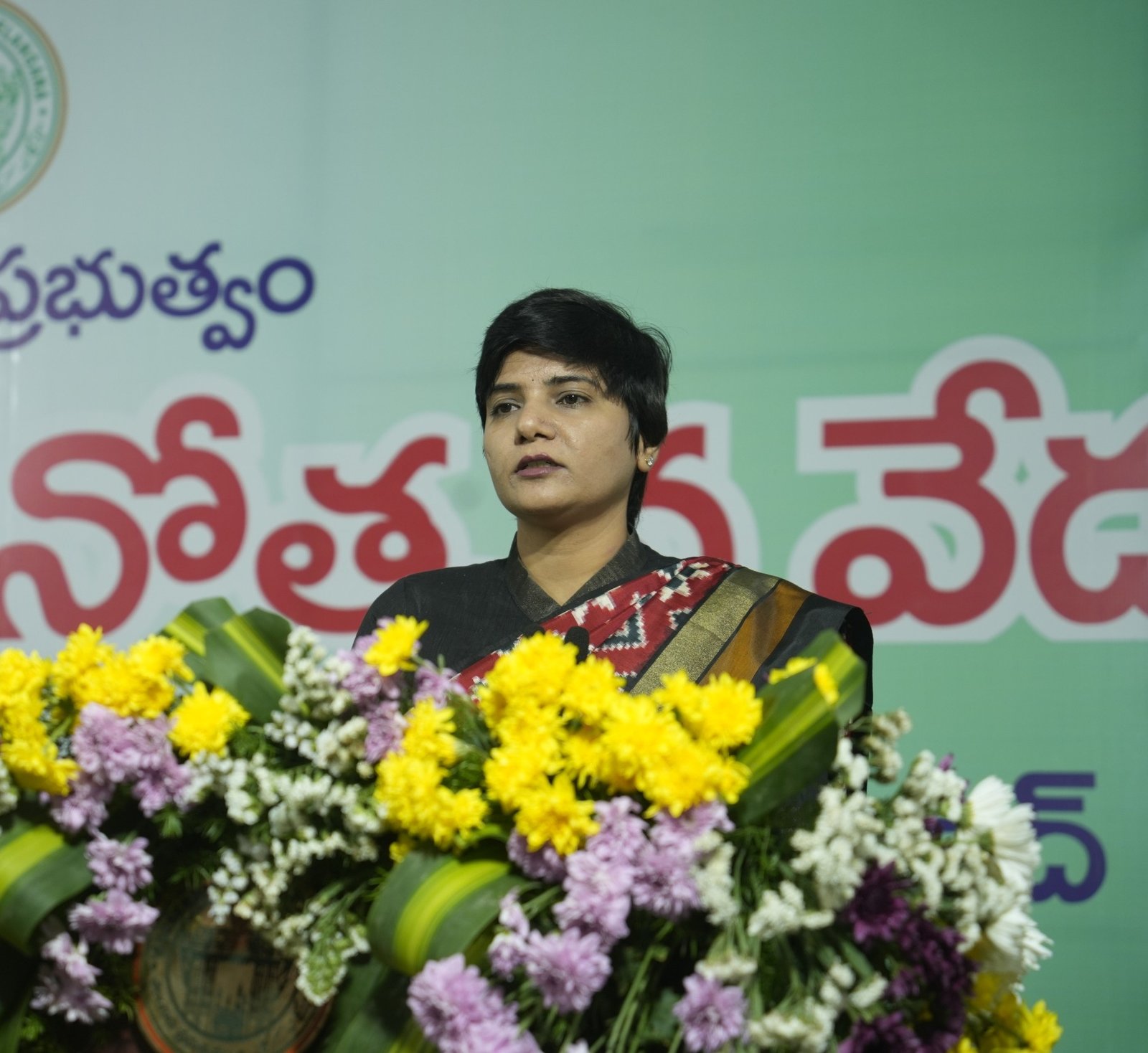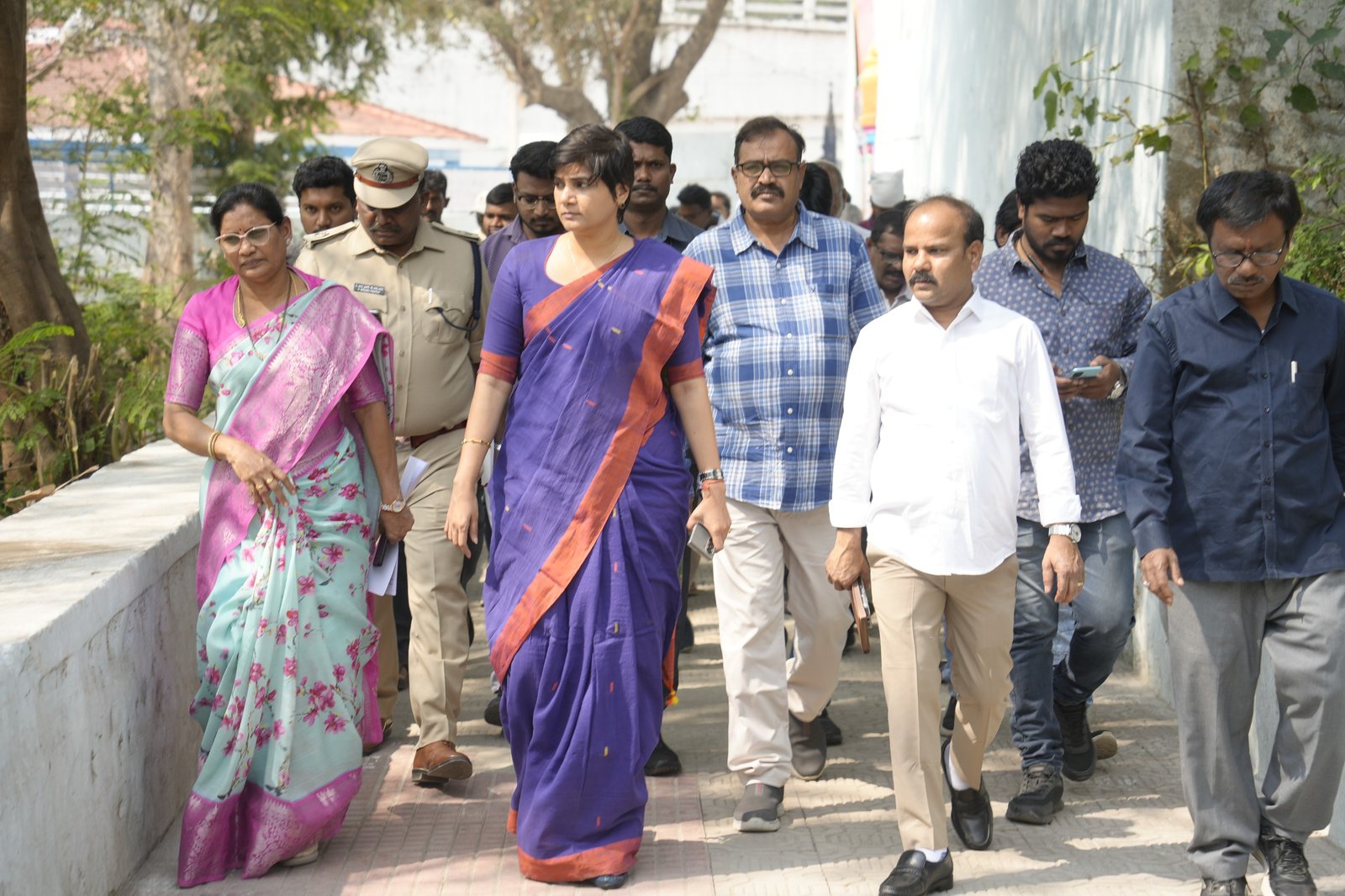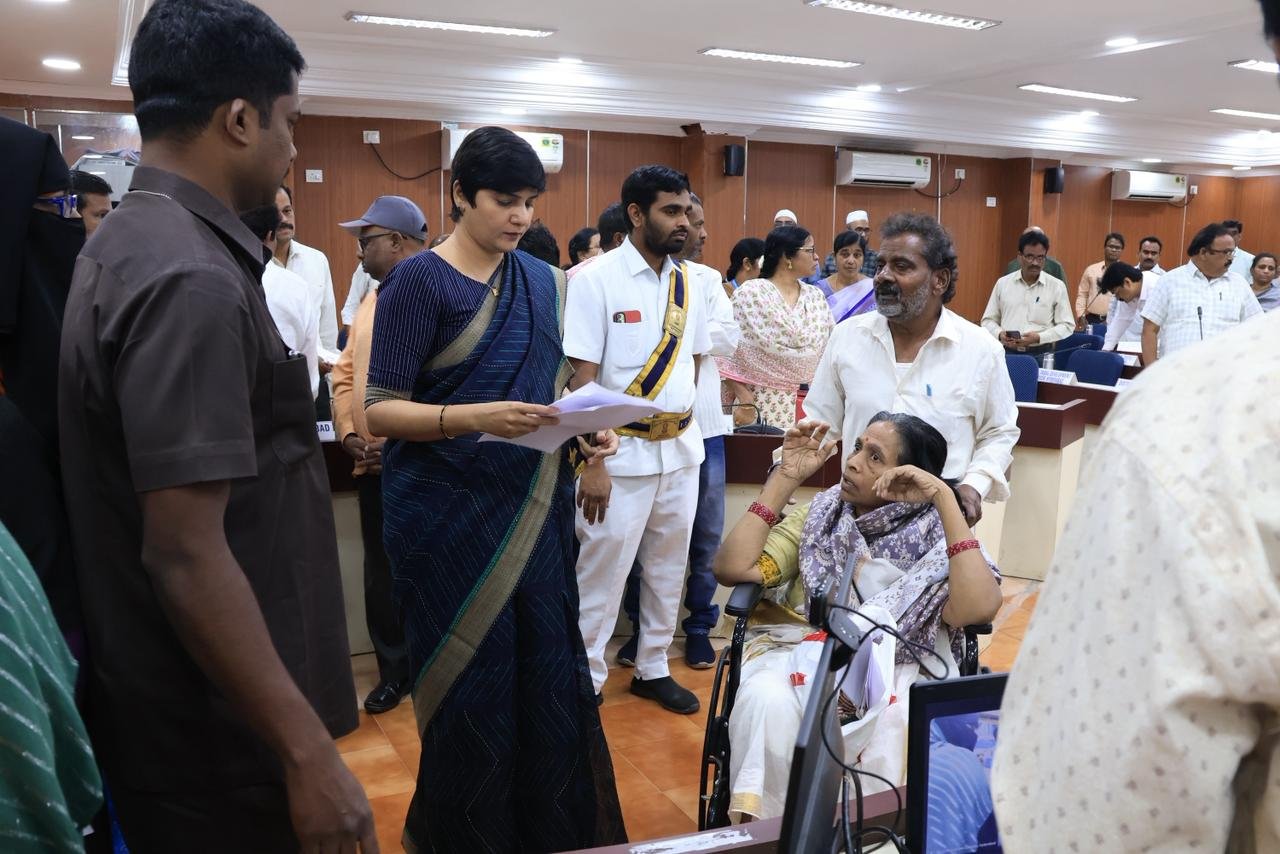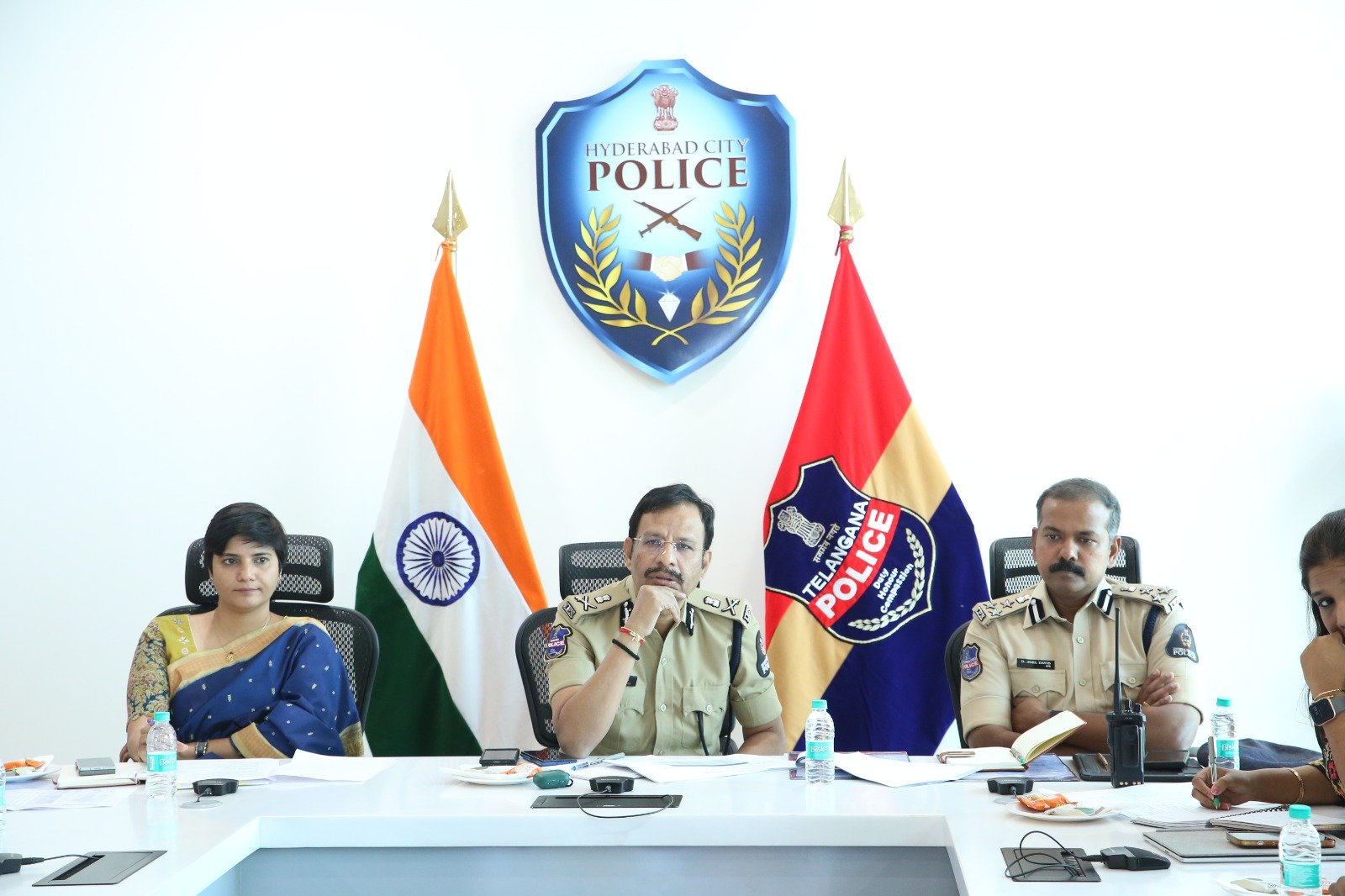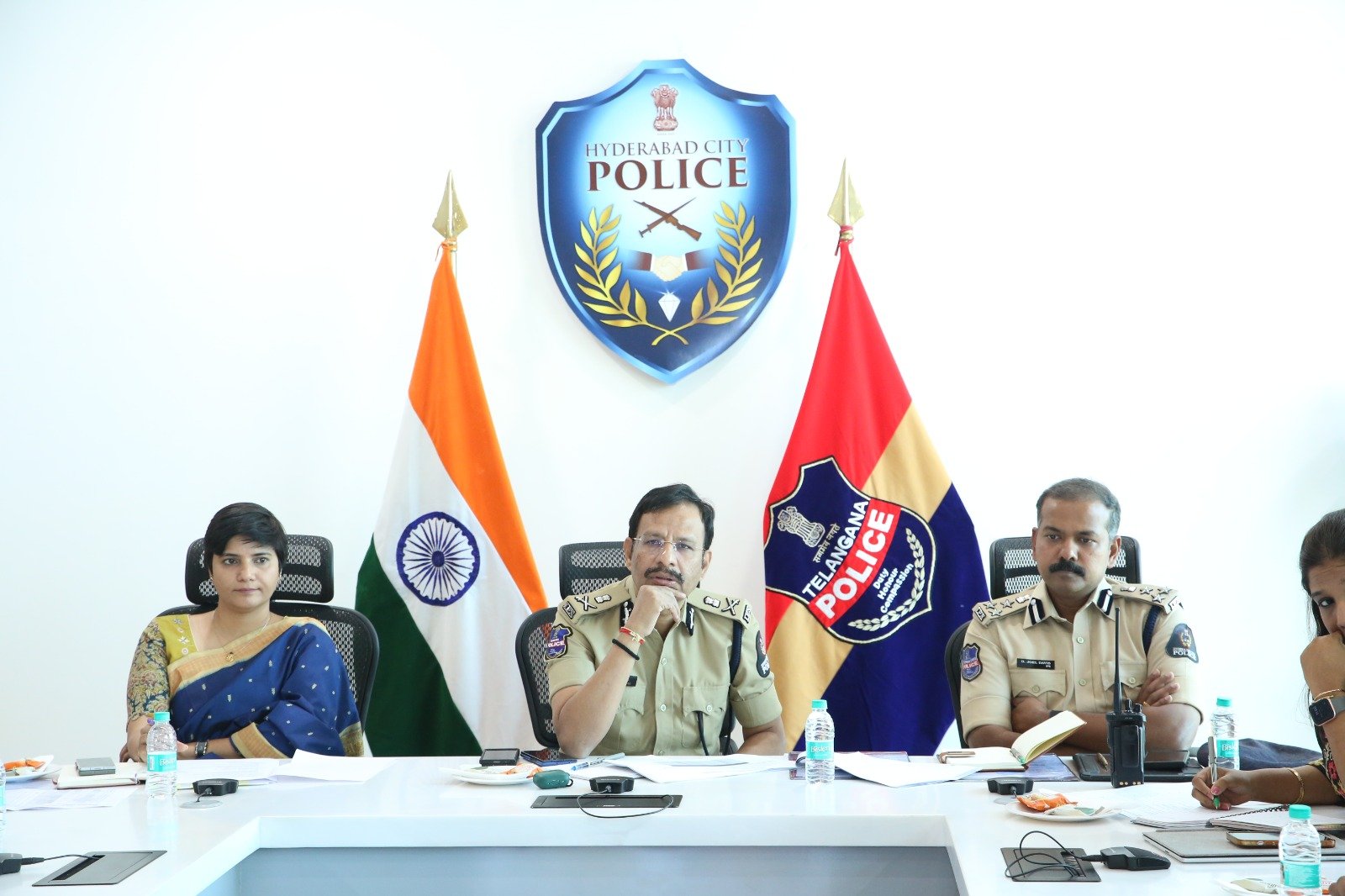Lakhs of people attempt this prestigious exam every year, but only a small fraction succeed in fulfilling their IAS ambitions due to its extensive syllabus and unpredictable nature. However, it is possible to crack the exam with the right strategies, dedication, and a well-structured plan.
IAS Preparation: Understanding the UPSC/IAS Exam
The UPSC Civil Services Exam (CSE) consists of three stages: the Preliminary Examination (Prelims), the Main Examination (Mains), and the Personality Test (Interview).
- Prelims is an objective-type test with two papers: General Studies (GS) Paper-I and Civil Services Aptitude Test (CSAT) Paper-II, which is qualifying. The Prelims tests candidates on current affairs, history, geography, polity, economy, science, comprehension, and logical reasoning.
- The main syllabus involves nine written papers, including General Studies, Essays, Optional Subjects, and language papers. It is more extensive and includes topics like internal security, disaster management, world history, social issues, ethics, and an optional subject.
- The last stage is the Personality Test (Interview), where the UPSC board assesses the candidate’s personality, suitability for a career in the services, diplomatic and communication skills, presence of mind, and stress reaction, among other qualities. Candidates may also be asked about their interests, hobbies, education, and work experience.
Understanding the UPSC exam pattern thoroughly and pacing preparation accordingly is crucial. Aspirants should also know the syllabus for the Preliminary and Main examinations in detail, as it is the “soul of any exam” and helps choose relevant study materials and prioritize subjects. The detailed syllabus is available in the UPSC notification.
Essential Elements for UPSC/IAS Preparation
Several key elements are consistently emphasized across the sources for adequate preparation:
- NCERT Books: Starting preparation with NCERT books from Classes 6 to 12th for subjects like History, Geography, Political Science, Economics, and Science is considered fundamental for building a strong base. Reading and thoroughly understanding these books makes the transition to advanced preparation easier.
- Newspaper Reading and Current Affairs: Reading newspapers daily is highlighted as a crucial aspect of IAS exam preparation. The civil services exam questions are directly or indirectly connected with current affairs. Aspirants should focus on editorials and do background research on discussed topics, preferably reading The Hindu or Indian Express. Following daily news helps stay updated on national and international events. BYJU’s Comprehensive News Analysis and YouTube channel are also mentioned as resources for current affairs.
- Time Management and Timetable: Setting a comfortable timetable before starting preparation and sticking to it is necessary to become an officer with a well-organized daily routine. Making a timetable streamlines preparation sets deadlines, and helps complete the syllabus faster. Balancing studies with other commitments, like a job, is possible with a well-charted plan and technology.
- Note-Making: Making short notes during UPSC preparation helps keep track of covered portions and serves as a ready-reckoner for revision. Separate files or notebooks for different subjects are recommended, especially for adding current affairs-related news.
- Previous Years’ Question Papers: Solving previous years’ UPSC question papers is crucial as they are the most reliable sources of UPSC pattern, difficulty level, and question type. Analyzing these papers helps judge trends and understand important areas in each subject.
- Mock Test: It is highly recommended that you join a mock test series to self-assess, realize and learn from mistakes, shape your preparation approach, and identify strengths and weaknesses.
- Revision: Timely revision is necessary due to the vast and diverse UPSC syllabus to avoid forgetting previously studied material.
- Optional Subject: It is essential to choose the optional subject wisely for the Mains examination, as the marks obtained contribute to the final merit. Selection should be based on educational background, interest, syllabus, and availability of resources.
- Government Resources: During preparation, it is beneficial to rely on government sources like PIB, PRS, and Rajya Sabha TV.
- Relevant Magazines: Yojana, Kurukshetra, and Economic & Political Weekly contain essential information on polity, governance, agriculture, and economy.
- Answer Writing Practice: Regular practice of writing answers is essential for the UPSC Mains exam.
- UPSC Interview: Preparing for the UPSC interview involves developing qualities beyond academics, such as diplomatic and communication skills.
Strategies and Tips for UPSC/IAS Aspirants
The sources offer several strategic tips for beginners:
- Prepare Yourself: Begin by preparing mentally and physically for the journey. Set goals and devote time effectively.
- Be Positive: Maintaining a positive attitude throughout the UPSC journey is crucial, especially when feeling overwhelmed.
- Hard Work and Smart Work: Cracking the exam requires hard work and innovation.
- Focus on Conceptual Clarity: Understanding concepts rather than memorizing facts is essential.
- Personalized Strategy: Aspirants should devise a well-planned preparation strategy that works best for them, considering their strengths and weaknesses. Modifying the strategy is okay if needed.
- Preparation After 12th and Graduation: Starting preparation after completing Class 12th provides ample time to build a strong foundation. Essential steps include choosing a graduation stream wisely, creating a habit of reading current affairs, understanding the syllabus, and developing reading and writing skills. Starting preparation after graduation is also a good idea, as it allows enough time to cover topics.
- Preparing Without Coaching: It is possible to become an IAS officer without coaching by following the right strategies, including reading NCERT books and newspapers, practicing answer writing, and taking mock tests. Online sources and methods are available for home preparation.
- Guidance Platforms: Utilizing online resources, free study materials, online courses, and webinars can significantly enhance preparation.
- Discipline and Consistency: Staying disciplined with studies and the timetable is crucial for success. Regular study habits lead to better retention.
- Health: Properly caring for physical and mental health is significant to avoid burnout and stay focused.
Preparation Timeline
While the time required varies, dedicating 1 to 2 years to comprehensive preparation is generally recommended. A typical one-year preparation plan involves starting with foundational subjects, reading newspapers, preparing for the optional subject in the initial months, revision, completing other topics, practicing essay and answer writing, and finally focusing exclusively on Prelims before the exam and then Mains.
Understanding the UPSC/IAS Exam Structure
This Examination has three stages: the Preliminary Examination (Prelims), the Main Examination (Mains), and the Personality Test (Interview).
- Prelims is an objective-type test designed to screen candidates for the Mains exam. It includes papers testing current affairs, history, geography, polity, economy, science, comprehension, and logical reasoning.
- Mains is a more extensive written examination that covers a broader range of subjects, including internal security, disaster management, world history, social issues, ethics, essay writing, and an optional subject chosen by the candidate.
- The UPSC board assesses a candidate’s suitability for civil services through a personality test (interview), which evaluates their critical thinking and character. This stage also assesses diplomatic and communication skills, presence of mind, and stress reaction.
Understanding the UPSC exam pattern is crucial for pacing your IAS preparation accordingly. Aspirants must also know the UPSC syllabus for the Preliminary and Main examinations in detail, as it is considered the “soul of any exam” and guides the selection of relevant study materials and subject prioritization. The detailed syllabus is available in the UPSC notification and can be downloaded in PDF format.
Essential Elements for UPSC/IAS Preparation
Several key elements are consistently highlighted across the sources as essential for adequate UPSC/IAS preparation:
- NCERT Books: Starting preparation with NCERT books from 6 to 12th grade for subjects like history, geography, polity, and economics is fundamental for building a strong base. Reading and thoroughly understanding these books simplifies complex topics and eases the transition to advanced preparation. Taking detailed notes while reading NCERTs helps create a strong base for advanced reference books.
- Newspaper Reading and Current Affairs: Reading a reputable newspaper daily, such as The Hindu or The Indian Express, is highlighted as a crucial aspect of IAS exam preparation. Questions in the civil services exam are directly or indirectly connected with current affairs, making it essential to follow relevant news items. Aspirants should focus on editorials and conduct background research on discussed topics. Consistent newspaper reading helps stay updated on national and international events and provides an upper hand in both Prelims and Mains. Resources like BYJU’s Comprehensive News Analysis and YouTube channels offer exam-relevant news analysis. Vajiram & Ravi also provide daily analysis of current affairs and monthly magazines.
- Time Management and Timetable: Setting a comfortable timetable before starting preparation and adhering to it is necessary to cultivate a well-organized daily routine similar to that of an officer. Creating a timetable streamlines preparation sets deadlines, and helps complete the syllabus faster. Technology can aid in balancing preparation with other commitments like a job.
- Knowing the UPSC Syllabus: The syllabus is the foremost thing to understand before referring to books. It helps in choosing relevant study materials and prioritizing subjects. Aspirants should prioritize topics as per the syllabus for targeted learning.
- Solving Previous Years’ UPSC Question Papers: Solving previous years’ question papers from the last 5-10 years is crucial as they are the most reliable sources for understanding the UPSC pattern, difficulty level, and types of questions. Analyzing these papers helps judge trends and identify critical areas in each subject.
- Mock Test Series: Joining the mock test series is highly recommended for self-assessment, realizing and learning from mistakes, shaping the preparation approach, and identifying strengths and weaknesses. Mock tests offer real exam simulation and teach time management. Regular testing helps evaluate preparation levels and improve confidence.
- Answer Writing Practice: Regular practice of writing answers is essential for the UPSC Mains exam. Starting early and practicing structured answers with an introduction, body, and conclusion are encouraged. Joining a test series can provide expert evaluation of answers.
- Choosing the Optional Subject Wisely: It is essential to select the optional subject carefully for the Mains examination, as the marks obtained contribute to the final merit. The choice should be based on factors like educational background, interest, syllabus, and availability of resources and coaching.
- Utilizing Government Resources: During preparation, it is very helpful to rely on government sources such as PIB, PRS, and national television programs on Rajya Sabha TV.
- Revision: Due to the vast and diverse UPSC syllabus, timely and regular revision is necessary to retain studied material.
- Note-Making: Making concise notes while reading newspapers and NCERTs is a helpful habit for revising essential events, key facts, and figures. Organizing notes by subject is recommended.
Preparation Tips for UPSC/IAS Aspirants
The sources offer several strategic tips for beginners:
- Begin by understanding the UPSC syllabus thoroughly.
- Lay a strong foundation by starting with NCERT books.
- Create a well-structured study plan and adhere to it.
- Develop a daily habit of reading a reputable newspaper.
- Practice answer writing from the beginning to improve clarity and conciseness.
- Integrate static subject knowledge with dynamic current affairs.
- Develop analytical skills rather than relying on rote memorization.
- Choose the optional subject wisely.
- Practice UPSC Prelims mock tests and previous year’s questions to improve speed and accuracy.
- Participate in regular mock tests for both Prelims and Mains.
- Analyze performance after each mock test to identify areas for improvement.
- Revise and reflect on the topics studied.
- Stay updated with online resources and study groups for additional learning and doubt-clearing.
- Maintain discipline and consistency in studies.
- Stay healthy and positive throughout the preparation.
- Consider joining a UPSC coaching for structured guidance.
- Focus on developing a strong sense of ethics, integrity, and social responsibility, particularly for the Ethics paper in Mains.
- Effectively utilize online resources, including lectures, current affairs summaries, and test series.
- Practice essay writing regularly to develop writing skills and coherent arguments.
- Stay updated with all UPSC official notifications.
Preparation Timeline
The time required for UPSC preparation can vary, ranging from 1 to 2 years of dedicated study.
Preparing Without Coaching:
Preparing for the IAS exam at home without coaching is possible by taking the proper steps, utilizing online sources, and following a strategic approach. This includes reading NCERT books and newspapers, practicing answer writing, and taking mock tests.
UPSC syllabus is the “Soul of Any Exam”
Aspirants are advised to thoroughly understand and even “mug up” the syllabus for Prelims and Mains to guide their study material selection and prioritize subjects. The syllabus is a “roadmap” for targeted learning, preventing distractions. It is available in the UPSC notification and can be downloaded as a PDF.
Creating a well-structured study plan and timetable is consistently emphasized as a crucial element of preparation. This involves analyzing the syllabus, understanding one’s strengths and weaknesses, allocating time for different subjects (dividing time between Prelims and Mains), and ensuring revision and mock tests. A well-organized daily routine is likened to that of an officer. Working professionals must analyze their time availability and chart a study plan accordingly.
The sources unanimously recommend starting with NCERT books to build a strong foundational understanding of history, geography, politics, and economics. After establishing this base, aspirants should move on to standard reference books. It is advised that resources and booklists be finalized early in the preparation. The “quality over quantity” principle is stressed, suggesting sticking to one or two certified books per subject to ease revision.
Staying updated with current affairs through daily newspaper reading (preferably The Hindu or Indian Express) is indispensable. Aspirants should focus on news related to government policies, international relations, economic updates, and environmental issues. Making short notes from newspapers is recommended for revision. Following relevant news items and exploring concise news analysis provided by platforms like BYJU’S is also suggested. Government resources like PIB and Rajya Sabha TV are highlighted as necessary. Magazines like Yojana, Kurukshetra, and Economic & Political Weekly are crucial for in-depth information on various topics.
Making short notes during preparation is highlighted as helpful for tracking covered portions and a ready-reckoner for revision, especially for a vast syllabus. Maintaining separate files or notebooks for subjects to incorporate current affairs is advised.
Practicing answer writing from the beginning is crucial for the main examination. This involves writing structured answers with an introduction, body, and conclusion. Joining a test series for evaluation and writing daily answers are encouraged. Focusing on clarity, conciseness, and adhering to word limits are essential to answer writing. Substantiating answers with real-life examples is also recommended.
Solving previous years’ UPSC question papers is considered one of the most reliable sources for understanding the exam pattern, difficulty level, and question types. Analyzing these papers helps in judging trends and identifying critical areas. It also serves as a good source of self-assessment. Similarly, taking a mock test series is highly recommended for self-assessment, realizing and learning from mistakes, shaping the approach, and identifying strengths and weaknesses.
Due to the vast and diverse syllabus, revision is emphasized as very important. Timely and consistent revision is necessary to avoid forgetting the studied material.
Selecting the optional subject for the main examination is essential as it carries significant marks. This decision should be based on factors like educational background, interest in the topic, syllabus, and availability of resources.
Beyond academic preparation, sources highlight the importance of all-round development and a positive mindset. Maintaining a healthy lifestyle, staying positive, and managing stress are essential throughout the demanding preparation journey.
Seeking guidance from mentors, seniors, or coaching institutes can provide valuable insights, strategies, and resources. While coaching is not mandatory, it can offer structured courses and simplify preparation.
Three main stages of the UPSC Civil Services Examination
The Preliminary Examination (Prelims), the Main Examination (Mains), and the Interview (Personality Test). Understanding the distinct nature of each stage is highlighted. Prelims is an objective test focusing on general awareness and aptitude, with CSAT being qualifying in nature. Mains is a descriptive examination testing in-depth knowledge and analytical abilities across nine papers. The interview assesses personality, communication skills, leadership qualities, and understanding of current affairs.
The UPSC syllabus is considered the “soul of any exam” and a “roadmap” for preparation. Aspirants are advised to thoroughly understand and even “mug up” the syllabus for both Prelims and Mains. This clarity helps understand what to read and what not to read, guiding study material selection and prioritizing subjects. The syllabus is available in the UPSC notification and can be downloaded as a PDF. Sources stress the importance of staying aligned with the syllabus, prioritizing topics accordingly for targeted learning, and avoiding distractions.
The sources also highlight the UPSC exam’s challenging and highly unpredictable nature, which is one of the most prestigious and demanding exams. This unpredictability means that preparation should not solely focus on finishing the syllabus but on constantly acquiring information and insight into current affairs. The UPSC adapts to recent trends, making it different from standard college examinations.
Solving previous years’ UPSC question papers is considered one of the most reliable sources for better understanding the exam pattern, difficulty level, and question types. Analyzing these papers helps judge trends and identify critical areas in each subject. It also serves as a good source of self-assessment. Similarly, taking a mock test series is highly recommended for self-assessment, realizing and learning from mistakes, shaping the approach, and improving time management skills. Mock tests also help aspirants get familiar with the exam environment.
Furthermore, understanding the exam also involves recognizing the importance of aspects beyond academic knowledge. The personality test emphasizes all-round development. Aspirants must develop analytical skills to apply information and cultivate a strong sense of ethics and integrity, especially for the Ethics paper in Mains.
In the initial stages of preparation, especially for beginners, sources advise focusing on understanding the exam structure and syllabus before diving into study materials. Some even suggest starting by thinking about the primary syllabus first. Discussing the exam with seniors or mentors can provide valuable insights into the examination and help adopt a proper strategy.
key elements of a preparation strategy
- Understanding the Exam: The first step in formulating a strategy is to understand the UPSC exam pattern thoroughly, its three stages (Prelims, Mains, Interview), and the nature of each stage. This understanding helps align preparation efforts with each stage’s specific demands.
- Mastering the Syllabus: Knowing the UPSC syllabus thoroughly, even “mugging it up,” is considered the “foremost thing to do” and the “soul of any exam.” A clear understanding of the syllabus helps define the scope of study, choose relevant materials, and prioritize subjects. Aspirants are advised to break down the vast syllabus into manageable parts and categorize subjects.
- Time Management and Creating a Study Plan: To become an IAS officer, one must have a well-organized daily routine and a comfortable timetable. The strategy should include setting daily, weekly, and monthly goals. Aspirants, especially working professionals, must analyze how they devote time to studies and chart a plan. A timetable helps streamline preparation, meet deadlines, and complete the syllabus faster. It should also allocate time for revision and mock tests.
- Choosing the Right Resources: The sources advise selecting good quality study materials and revising them repeatedly for conceptual clarity. NCERT books are foundational for building a basic understanding of various subjects. After NCERTs, aspirants should move on to standard reference books. Sticking to a limited number of certified books for each subject is crucial to ease revision.
- Integrating Current Affairs: Staying updated with current affairs through daily newspaper reading (like The Hindu or Indian Express) is essential to the strategy. Aspirants should focus on news related to government policies, international relations, economic updates, and environmental issues. Making short notes on relevant articles and revising them regularly is recommended. Utilizing government resources like PIB and Rajya Sabha TV is also suggested.
- Effective Note-Taking: Making short notes during UPSC preparation helps track covered portions and serve as a ready-reckoner for revision, especially given the vast syllabus. Maintaining separate files or notebooks for subjects and allowing the addition of current affairs is a valuable strategy.
- Answer Writing Practice: Practicing answer writing from the beginning is a key aspect of the strategy for UPSC Mains. Aspirants should aim to express their thoughts clearly and concisely within the time limit. Joining a test series for answer evaluation and practicing daily by writing structured answers with an introduction, body, and conclusion are recommended.
- Mock Tests and Self-Assessment: Regular self-assessment through mock test series is essential for realizing and learning from mistakes, shaping the approach, and identifying strengths and weaknesses. Mock tests help students become familiar with the exam environment. Solving previous years’ UPSC question papers is crucial for understanding each subject’s exam pattern, difficulty level, and critical areas.
- Revision: Given the vast and diverse syllabus, timely revision is a must to avoid forgetting the studied material. Including regular revision sessions in the study schedule helps reinforce learning and improve retention.
- Choosing the Optional Subject Wisely: It is very important to select the correct optional subject for the main exam. The decision should be based on educational background, interest, syllabus, and availability of resources.
- Staying Positive and Healthy: Maintaining a positive attitude is crucial throughout the demanding UPSC journey. Aspirants should remove negative thoughts and persevere. Proper health care, both mental and physical, is also emphasized to avoid burnout and stay focused.
- Seeking Guidance and Mentorship: Discussing the exam with seniors can provide valuable insights and help adopt a proper strategy. Considering guidance platforms and even coaching institutes can be beneficial for structured learning and resources.
- Flexibility and Personalization: While general tips are helpful, aspirants must create a personalized strategy based on their strengths, weaknesses, and learning styles. Modifying the plan for more fruitful results is okay.
Some sources also highlight specific strategies for different stages of preparation. For beginners, the focus should be building a strong foundation with NCERTs and understanding the syllabus. Some even suggest starting by thinking about the primary syllabus first. As preparation progresses, the focus should shift towards integrating current affairs, practicing answer writing, and taking mock tests.
Right mindset and approach
The right mindset and approach are paramount for success in the challenging UPSC/IAS exam. The exam is not just about academic knowledge but also requires a specific attitude and thinking.
Here’s what the sources say about the crucial aspects of mindset and approach:
- Mental and Physical Preparedness: Aspirants must mentally and physically prepare for the demanding journey. This involves setting goals and managing time effectively. The UPSC exam is described as a marathon, not a sprint, requiring sustained effort.
- Positive Attitude and Perseverance: Maintaining a positive attitude throughout the preparation is considered the “most important aspect.” There will be overwhelming and depressing times, so it’s crucial to remove negative thoughts and keep working. The journey demands dedication and perseverance.
- Humility and Continuous Learning: Aspirants should be humble and hungry to learn. UPSC seeks a “living brain which can think on the spot” rather than just rote learning.
- Strategic Thinking and Planning: A well-defined strategy is a “prerequisite to excel” in this examination. Success depends on making the right decisions at the correct times.
- Analytical Skills over Rote Learning: UPSC emphasizes analyzing and applying information rather than memorizing facts. Aspirants should read critically, form opinions, and practice writing structured answers.
- Discipline and Consistency: Staying disciplined with studies and the timetable is “very crucial for success.” Consistency in study habits leads to better retention and understanding. A disciplined routine is necessary for effective time management.
- Adaptability and Flexibility: While a strategy is essential, modifying it can yield more fruitful results. Little changes in study plans are alright if they don’t suit you.
- Openness to Guidance and Mentorship: Discussing the examination with seniors or mentors can provide valuable insights and help adopt a proper strategy.
- Understanding the Nature of the Exam: Aspirants need to understand the unpredictable nature of the UPSC exam. Unlike standard college examinations, UPSC adapts quickly to recent trends.
- Focus on Application and Understanding: CSE is not just a test of knowledge but its application. The focus should be on understanding concepts.
- Critical Self-Assessment: Critical self-assessment is required to identify strengths and weaknesses.
The right mindset and approach for UPSC/IAS preparation go beyond simply studying hard. They involve a combination of mental resilience, strategic planning, a continuous learning attitude, discipline, and the ability to adapt to the dynamic nature of the exam. Cultivating these qualities is as important as covering the syllabus and practicing answer writing.
Common mistakes that UPSC/IAS exam aspirants should avoid
- Ignoring or Not Understanding the UPSC Syllabus: Several sources emphasize the importance of thoroughly knowing the UPSC syllabus. Not knowing the syllabus is a fundamental error as it is the “soul of any exam” and your “roadmap.” Aspirants should avoid thinking their syllabus is simply history, geography, and economy but rather read the detailed themes provided for each GS paper. Ignoring the syllabus can lead to studying irrelevant material, difficulty choosing relevant study materials, and poor prioritization of subjects. Some sources even advise aspirants to aim to memorize the entire syllabus.
- Not Reading Newspapers/Ignoring Current Affairs: A significant mistake is not reading a daily newspaper or following daily news regularly. The questions in the civil services exam are directly or indirectly connected with current affairs. Aspirants cannot hope to clear the exam without this habit. It’s essential to go beyond reading and background research on the topics discussed in editorials. Avoid sensational sources and prioritize reputable newspapers like The Hindu or The Indian Express.
- Relying Solely on Rote Learning: UPSC isn’t about rote memorization but analyzing and applying information. A mistake would be to focus only on finishing the syllabus without developing a “living brain” that can think on the spot rather than a “dead mind” that has memorized books (this concept was discussed in our previous conversation, though not explicitly in these new sources). Avoid just learning without applying the knowledge.
- Using Too Many Resources for a Single Subject: Starting preparation from zero does not mean using a vast range of resources. A common mistake is buying ten different books for a single subject. Aspirants should avoid this and instead stick to one or two certified books recommended by teachers or mentors. Quality over quantity is key for better revision. Studying from the wrong sources can be detrimental.
- Neglecting Note-Making: It is a mistake not to make short and organized notes during UPSC preparation. The vast syllabus makes it challenging to track covered portions and revise without notes. Avoid just reading without summarizing key information. Files are preferred for adding current affairs to specific topics.
- Not Solving Previous Years’ Question Papers: Failing to review previous years’ question papers is a significant error. These papers are the most reliable sources for understanding the UPSC pattern, difficulty level, and question types. By analyzing them, aspirants can judge trends and understand important areas.
- Avoiding Mock Tests: Thinking that one is prepared without testing one’s knowledge is a mistake. Joining a mock test series is highly recommended, especially when preparing from home. Avoiding mock tests prevents self-assessment, realizing and learning from mistakes, and shaping the preparation approach. They also help in learning time management.
- Ignoring Revision: It is a mistake to cover the vast and diverse syllabus without timely revision. Forgetting things studied earlier is natural, so revision is a must to avoid this. Create a revision timetable and use active recall methods.
- Not Choosing the Optional Subject Wisely: Choosing the correct One is very important for Mains. Avoid making a hasty decision without considering the educational background, familiarity, interest, syllabus, availability of resources, and coaching classes.
- Being Undisciplined and Inconsistent: A key mistake is not staying disciplined with studies and the timetable. While a comfortable timeframe should be set, sticking to it is crucial. Avoid inconsistent study habits, as regular study leads to better retention.
- Neglecting Answer Writing Practice: Waiting until the later stages to practice answer writing for UPSC Mains is a mistake. It’s essential to start practicing to express thoughts clearly and concisely within the time limit. Avoid neglecting this crucial skill that can significantly impact the score.
- Not Developing Analytical Skills: UPSC preparation is about memorizing facts and developing analytical skills. Avoid rote learning and instead focus on integrating static knowledge with dynamic current affairs, reading critically, and forming opinions.
- Ignoring Government Resources: Aspirants should avoid overlooking necessary government resources like PIB, PRS, and Rajya Sabha TV. Since the ultimate aim is to work for the government, these sources provide valuable and relevant information.
- Developing a Negative Attitude: The UPSC journey can be overwhelming, and letting negative thoughts dominate is a mistake. Aspirants should strive to stay positive throughout the entire process.
- Forgetting Health (Mental and Physical): Neglecting health, both mental and physical, is a grave mistake. The IAS exam is a “game of mind over matter.” Avoid burnout by following an exercise regime, practicing yoga or meditation, and caring for mental well-being.
- Passive Learning: Relying solely on passive learning without actively applying knowledge is a common mistake, especially for repeat aspirants.
- Not Connecting Static Knowledge with Current Affairs: Failing to integrate static subject notes with dynamic current affairs is a mistake. UPSC assesses the ability to analyze and apply information, requiring this crucial connection.
By being mindful of these common mistakes and consciously working to avoid them, UPSC/IAS aspirants can significantly enhance their preparation and increase their chances of success.
Conclusion
In conclusion, the sources emphasize that while the UPSC/IAS exam is highly challenging, it can be successfully cleared with a thorough understanding of the exam pattern and syllabus, consistent effort in studying the right materials (especially NCERTs and newspapers), effective time management, regular self-assessment through mock tests and previous year papers, dedicated answer writing practice, and maintaining a positive and disciplined approach.



